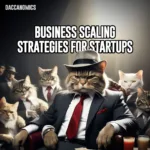In today’s rapidly changing world, the debate over the value of a college education continues to intensify. On one side, there’s a prevailing belief that obtaining a degree is the golden ticket to success and financial stability. On the other side, a growing number of voices advocate for a more nuanced approach, one that emphasizes real-world experience, critical thinking, and personal growth over traditional academic achievement.
Amidst this discussion, it’s crucial to consider the pressures and expectations that students face from both peers and parents. Many young adults feel compelled to pursue higher education simply because it’s the societal norm or due to parental influence. However, this pressure can lead to a mismatch between individual aspirations and traditional academic pursuits, resulting in dissatisfaction and high dropout rates.
Parents, understandably, want what’s best for their children and often equate success with a college degree. However, parents need to recognize that success can take many forms and that alternative paths to achievement exist beyond the confines of academia.
So, what are these alternative paths, and why are they gaining traction? One compelling argument centers on the value of real-world experience and practical skills development. Increasingly, individuals are finding success through avenues such as internships, apprenticeships, and entrepreneurship, which offer hands-on learning experiences and direct pathways to career advancement.
Moreover, the rising cost of tuition and the burden of student loan debt have prompted many to reevaluate the return on investment of a traditional college education. With tuition fees soaring, students are exploring more cost-effective and time-efficient options for skills development and career advancement.
Specialized training and certification programs have emerged as viable alternatives, offering targeted skill development in high-demand fields such as technology, healthcare, and skilled trades. These programs provide a more focused approach to learning and can often lead to lucrative career opportunities without the lengthy time commitment of a four-year degree.
Furthermore, comprehensive education reform is essential to address the changing needs of students in the 21st century. Instead of adhering to a one-size-fits-all approach, educational institutions must embrace diversity of thought, creativity, and innovation. This involves reimagining curriculum content, teaching methodologies, and assessment criteria to better prepare students for the complexities of the modern world.
As we navigate the changing landscape of education, it’s imperative to challenge conventional norms, foster creativity and innovation, and empower individuals to pursue their passions and aspirations. In doing so, we can create a more equitable and inclusive educational system that prepares students for success in an ever-evolving global economy.
In addition to exploring alternative pathways to traditional higher education, it’s essential to address the broader societal implications of the evolving educational landscape. The current emphasis on academic credentials as the primary measure of individual worth perpetuates inequality and marginalization, particularly for marginalized communities and socioeconomically disadvantaged individuals.
For many students from low-income backgrounds or underrepresented communities, access to higher education remains a distant dream due to financial constraints and systemic barriers. As tuition costs continue to rise and financial aid options become increasingly limited, the gap between the privileged and the marginalized widens, perpetuating cycles of poverty and inequality.
Moreover, the traditional emphasis on standardized testing and rote memorization fails to accommodate diverse learning styles and abilities. Many students who excel in non-traditional settings or possess unique talents and interests may struggle within the confines of traditional educational structures, leading to disengagement and academic underachievement.
To address these disparities, it’s imperative to advocate for inclusive and equitable educational policies that prioritize access, diversity, and social mobility. This includes expanding scholarship opportunities, increasing funding for need-based financial aid, and implementing holistic admissions processes that consider factors beyond standardized test scores.
Fostering a culture of lifelong learning and skill development is essential in today’s rapidly changing job market. The notion of education as a linear, one-time pursuit is outdated and impractical in an era defined by technological disruption and economic uncertainty. Instead, individuals must embrace continuous learning and adaptability to thrive in dynamic professional environments.
Fortunately, technological advancements and digital platforms have democratized access to information and learning resources, making education more accessible and flexible than ever before. Online courses, virtual workshops, and open educational resources provide opportunities for individuals to acquire new skills and knowledge at their own pace and convenience.
In conclusion, reimagining the future of education requires a collective commitment to equity, accessibility, and innovation. By challenging entrenched paradigms, dismantling systemic barriers, and embracing diverse pathways to learning and achievement, we can create a more inclusive and empowering educational ecosystem for all individuals, regardless of background or circumstance.





